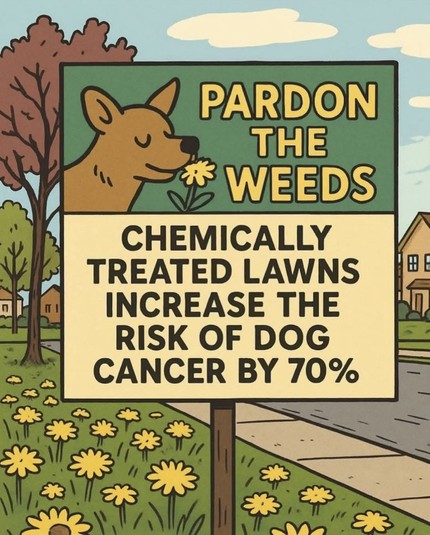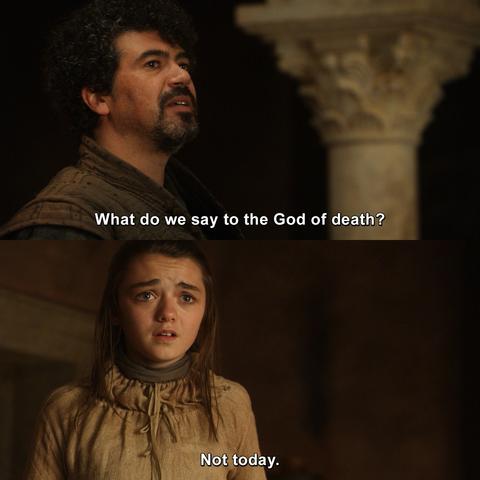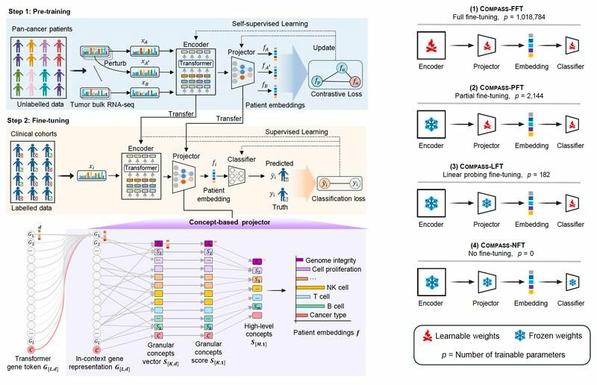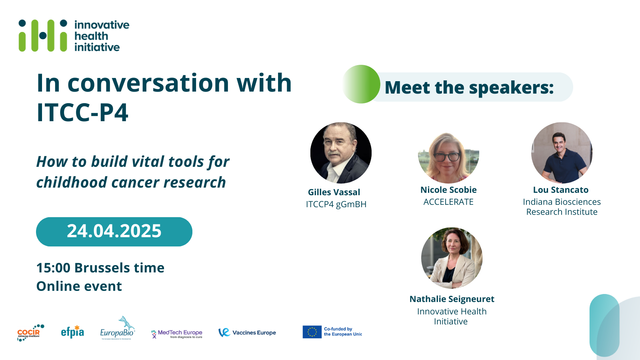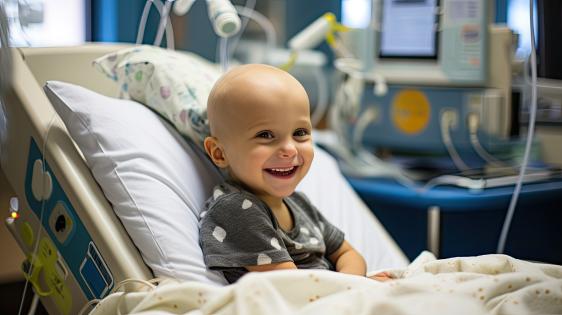Quoi de neuf Mastodon ?
Aujourd'hui je sort de l'hôpital. J'ai été opéré il y a deux jours de mon deuxième cancer en 6 mois (à 48 ans). Cancer du colon en octobre et cancer du rein en mai. Jusqu'ici tout va bien, la tumeur a été retirée et il n'y a pas de métastases.
Comme pour la première fois, je ne dois ma survie qu'à la qualité du service public de santé et à la dévotion des équipes médicales.
Préservons le à tout prix !
It beats 22 models predicting survival outcomes more accurately than PD-L1 expression, with a hazard ratio of 4.7 (p < 0.0001) https://medrxiv.org/content/10.1101/2025.05.01.25326820v1
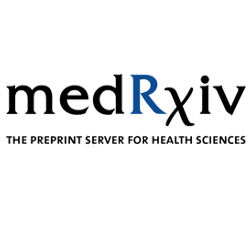
Generalizable AI predicts immunotherapy outcomes across cancers and treatments
Immune checkpoint inhibitors have become standard care across many cancers, but most patients do not respond. Predicting response remains challenging due to complex tumorimmune interactions and the poor generalizability of current biomarkers and models. Predictors such as tumor mutational burden, PD-L1 expression, and transcriptomic signatures often fail across cancer types, therapies, and clinical settings. There is a clear need for a robust, interpretable model that captures shared immune response principles and adapts to diverse clinical contexts. We present Compass, a foundation model for predicting immunotherapy response from pan-cancer transcriptomic data using a concept bottleneck architecture. Compass encodes tumor gene expression through 44 biologically grounded immune concepts representing immune cell states, tumor-microenvironment interactions, and signaling pathways. Trained on 10,184 tumors across 33 cancer types, Compass outperforms 22 baseline methods in 16 independent clinical cohorts spanning seven cancers and six immune checkpoint inhibitors, increasing precision by 8.5%, Matthews correlation coefficient by 12.3%, and area under the precision-recall curve by 15.7%, with minimal or no additional training. The model generalizes to unseen cancer types and treatments, supporting indication selection and patient stratification in early-phase clinical trials. Survival analysis shows that Compass-stratified responders have significantly longer overall survival (hazard ratio = 4.7, p < 0.0001). Personalized response maps link gene expression to immune concepts, revealing distinct mechanisms of response and resistance. For example, among immune-inflamed non-responders, Compass identifies distinct resistance programs involving TGF- β signaling, endothelial exclusion, CD4+ T cell dysfunction, and B cell deficiency. By combining mechanistic interpretability with transfer learning, Compass provides mechanistic insights into treatment response variability, supports clinical decision-making, and informs trial design. ### Competing Interest Statement D.M. and N.N are currently employed by F. Hoffmann-La Roche Ltd. ### Funding Statement We gratefully acknowledge the support of NIH R01-HD108794, NSF CAREER 2339524, US DoD FA8702-15-D-0001, Harvard Data Science Initiative, Amazon Faculty Research, Google Research Scholar Program, AstraZeneca Research, Roche Alliance with Distinguished Scientists, Sanofi iDEA-iTECH, Pfizer Research, Gates Foundation (INV-079038), Chan Zuckerberg Initiative, John and Virginia Kaneb Fellowship at Harvard Medical School, Biswas Computational Biology Initiative in partnership with the Milken Institute, Harvard Medical School Dean’s Innovation Fund for the Use of Artificial Intelligence, and Kempner Institute for the Study of Natural and Artificial Intelligence at Harvard University. M.M.L. is supported by The Ivan and Francesca Berkowitz Family Living Laboratory Collaboration at Harvard Medical School and Clalit Research Institute. T.H.N. acknowledges the support of NIH-2T32AI007512. We thank Min Cong at Brigham and Women’s Hospital for discussions on immune checkpoint treatments. Any opinions, findings, conclusions or recommendations expressed in this material are those of the authors and do not necessarily reflect the views of the funders. ### Author Declarations I confirm all relevant ethical guidelines have been followed, and any necessary IRB and/or ethics committee approvals have been obtained. Yes I confirm that all necessary patient/participant consent has been obtained and the appropriate institutional forms have been archived, and that any patient/participant/sample identifiers included were not known to anyone (e.g., hospital staff, patients or participants themselves) outside the research group so cannot be used to identify individuals. Yes I understand that all clinical trials and any other prospective interventional studies must be registered with an ICMJE-approved registry, such as ClinicalTrials.gov. I confirm that any such study reported in the manuscript has been registered and the trial registration ID is provided (note: if posting a prospective study registered retrospectively, please provide a statement in the trial ID field explaining why the study was not registered in advance). Yes I have followed all appropriate research reporting guidelines, such as any relevant EQUATOR Network research reporting checklist(s) and other pertinent material, if applicable. Yes All publicly available data generated in this study are available from the corresponding author upon reasonable request. Access to controlled datasets requires direct application to the original study investigators, in accordance with their data sharing policies. <https://www.immuno-compass.com/download/index.html> The pan-cancer TCGA datasets, including gene expression and mutation data, are available from the Genomic Data Commons data portal (<https://portal.gdc.cancer.gov/>, version 37). Clinical data for TCGA patients are provided in Liu et al .[61][1]. The datasets for the IMmotion150 cohort (EGA accession: EGAS00001002928)[19][2], IMvigor210 cohort (EGA accession: EGAS00001002556)[18][3] and IMvigor210CoreBiologies (v1.0.1, Ref[42][4]), Choueiri et al .[27][5], Zhao et al . (SRA accession: PRJNA482620)[30][6], Miao et al . (dbGAP accession: phs001493.v1.p1)[28][7], and Kim et al . (ENA accession: PRJEB25780)[24][8] are available from the Cancer Research Institute iAtlas (<https://cri-iatlas.org/>)[62][9] and Synapse (<https://www.synapse.org/>, accession: syn10337516). The Ravi et al . cohort 1 (LUAD) and cohort 2 (LUSC) are non-small cell lung cancer (NSCLC) cohorts from the SU2C-MARK study[20][10], available through dbGaP under accession number phs002822.v1.p1. The Snyder et al . cohort[29][11] is available on Zenodo (<https://doi.org/10.5281/zenodo.546110>). The Rose et al .[26][12] dataset is available on the Gene Expression Omnibus under accession ID GSE176307. The melanoma cohorts from Liu et al .[21][13] (dbGAP accession: phs000452.v3.p1), Gide et al .[25][14] (ENA accession: PRJEB23709), Riaz et al .[8][15] (BioProject accession: PRJNA356761), Van Allen et al .[23][16] (dbGAP accession: phs000452.v2.p1), Hugo et al .[31][17] (GEO accession: GSE78220), and Freeman et al . (the MGH cohort, dbGAP accession: phs002683.v1.p1)[22][18]. Additional information, including patient metadata, gencode annotations, cancer codes, and Compass-concepts, are available on the Compass website (<https://www.immuno-compass.com/download>). [1]: #ref-61 [2]: #ref-19 [3]: #ref-18 [4]: #ref-42 [5]: #ref-27 [6]: #ref-30 [7]: #ref-28 [8]: #ref-24 [9]: #ref-62 [10]: #ref-20 [11]: #ref-29 [12]: #ref-26 [13]: #ref-21 [14]: #ref-25 [15]: #ref-8 [16]: #ref-23 [17]: #ref-31 [18]: #ref-22
https://www.youtube.com/watch?v=v6NS7wrGItg

Tim McGraw - Live Like You Were Dying (Lyrics)
#Cancer: un nouveau #traitement #révolutionnaire élimine les #tumeurs de #cancers du #rectum, de l' #estomac ou de l' #œsophage sans passer par la case #chirurgie
Cancer: un nouveau traitement ...
Vite du muscle ! Que valent vraiment les whey ? Notre comparatif (60 Millions de Consommateurs) :
#IHITransformingHealth #HorizonEU #CancerMission
Ils sont beaux, personnels, éternels. Mais pourraient-ils aussi être nocifs? Cette chronique explore un lien de plus en plus documenté entre #tatouage et cancers.
#santé #mastodon #cancers #paris #france #europe #canada #quebec #maladies#tattoo
https://mesplaisirs.com/et-si-votre-tatouage-vous-coutait-plus-que-prevu/
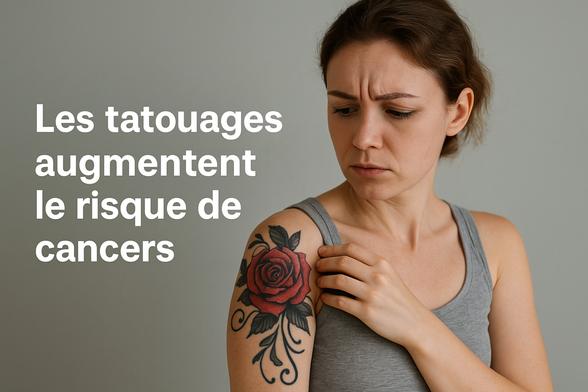
Et si votre tatouage vous coûtait plus que prévu ? - Mes Plaisirs Magazine
Dans les rues animées des grandes villes, dans les festivals ou les couloirs de métro, les tatouages s’affichent fièrement. Ils racontent une histoire, marquent une époque, symbolisent un souvenir ou une rébellion. Aujourd’hui, se faire tatouer n’est plus une démarche marginale. C’est un choix artistique, personnel, parfois revendicatif. Mais sous cette démocratisation culturelle se cache
